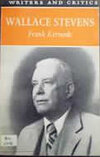Frank Kermode (1919–2010)
Autor de The Literary Guide to the Bible
Sobre El Autor
Sir John Frank Kermode, November 29, 1919 - August 17, 2010 John Kermode was a British literary critic best known for his work The Sense of an Ending: Studies in the Theory of Fiction, published in 1967 (revised 2000), and for his extensive book-reviewing and editing. He was the Lord Northcliffe mostrar más Professor of Modern English Literature at University College London and the King Edward VII Professor of English Literature at Cambridge University. Kermode served during World War II with the Royal Navy. After the war, Kermode held positions at Manchester University, Bristol University, University College of London, and Cambridge University, all in England, and at Columbia University in New York City. He was Charles E. Norton Professor at Harvard University in 1977-78 and Henry Luce Professor at Yale University in 1994. Kermode wrote several books on literary figures, including D.H. Lawrence and Wallace Stevens. His works of criticism include An Appetite for Poetry and The Art of Telling. Kermode was also the editor of the cultural journal, Encounter and his memoir, Not Entitled, was published in 1995. Kermode serves on the editorial board of the London Review of Books and Common Knowledge and has acted as judge for the Booker Prize. He was knighted for his service to English literature and he was named a Foreign Honorary Member of the American Academy of Arts and Letters in 1999. He died in Cambridge on August 17, 2010. (Bowker Author Biography) Frank Kermode has written & edited many works, among them "Forms of Attention" & a memoir, "Not Entitled" (FSG, 1995). He lives in Cambridge, England, & has frequently taught in the United States. (Publisher Provided) mostrar menos
Obras de Frank Kermode
The Oxford Anthology of English Literature, Volume I: The Middle Ages through the Eighteenth Century (1973) — Editor — 188 copias
The Oxford Anthology of English Literature: Volume II: The Literature of Renaissance England (1973) — Editor — 174 copias
The Oxford Anthology of English Literature, Volume II: 1800 to the Present (1973) — Editor — 173 copias
Forms of Attention (The Wellek Library lectures at the University of California, Irvine) (1985) 48 copias
The Duchess of Malfi: Seven Masterpieces of Jacobean Drama (Modern Library Paperbacks) (2005) — Editor — 40 copias
The Oxford anthology of English literature — Editor — 25 copias
The Way We Live Now 3 copias
Romantic Image. On the poetic image, with special reference to modern poetry and criticism (1957) 1 copia
The Poems of John Donne 1 copia
Formas de Atenção Livro 1 1 copia
The defence of poetry 1 copia
Obras relacionadas
La Carne, la muerte y el diablo en la literatura romántica (1930) — Prólogo, algunas ediciones — 344 copias
The Dylan Companion: A Collection of Essential Writing About Bob Dylan (1990) — Contribuidor, algunas ediciones — 96 copias
A Mirror for Modern Scholars: Essays in Methods of Research In Literature (1966) — Contribuidor — 11 copias
Etiquetado
Conocimiento común
- Nombre legal
- Kermode, John Frank
- Fecha de nacimiento
- 1919-11-29
- Fecha de fallecimiento
- 2010-08-17
- Género
- male
- Nacionalidad
- Groot-Brittannië
- Lugar de nacimiento
- Douglas, Isle of Man, UK
- Lugar de fallecimiento
- Cambridge, Cambridgeshire, England, UK
- Lugares de residencia
- Isle of Man, UK
Liverpool, England, UK
Cambridge, England, UK
London, UK
New York, New York, USA - Educación
- University of Liverpool (BA|1940|MA|1947)
- Ocupaciones
- literary critic
university professor - Organizaciones
- King's College, Cambridge University
University College London
Bristol University
Manchester University
University of Reading
King's College, Newcastle (mostrar todos 7)
Royal Navy (WWII) - Premios y honores
- Knight Bachelor (1991)
American Academy of Arts and Letters (1999)
Fellow, British Academy (1973)
Fellow, Royal Society of Literature (1958)
Honorary Foreign Member, American Academy of Arts and Sciences (1976)
Officier de l'Ordre des Arts et des Sciences
Miembros
Reseñas
Listas
Premios
También Puede Gustarte
Autores relacionados
Estadísticas
- Obras
- 68
- También por
- 74
- Miembros
- 4,372
- Popularidad
- #5,735
- Valoración
- 4.0
- Reseñas
- 31
- ISBNs
- 183
- Idiomas
- 8
- Favorito
- 3



















